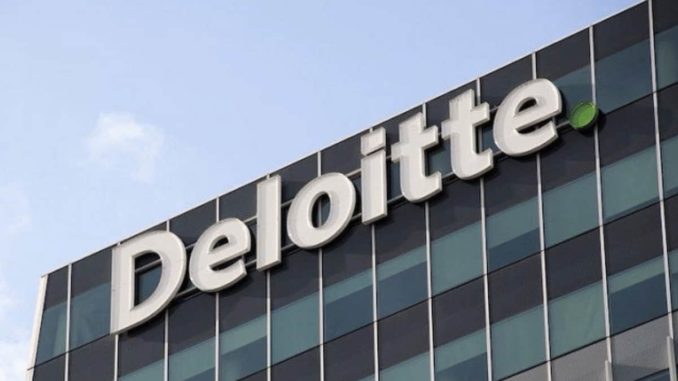
Deloitte believes Bitcoin and cryptocurrencies can help deliver a payment system that is fast, secure, effective, can facilitate efficient cross-border transactions, but there are challenges to overcome first.
In the latest study called ‘State-sponsored cryptocurrency,’ Deloitte provided a fresh perspective of a central bank’s digital currency by revamping the traditional fiat system and adapting Bitcoin’s innovation.
Win-Win Game
According to Deloitte, combining the best attributes of the technology of cryptocurrencies with the features of an established fiat currency under the sponsorship of a central bank would result in a new method of handling payments. It could revolutionize the current system by cutting costs, reducing errors, enhancing transfer speed without compromising privacy and anonymity.
The analysis also demonstrated that the foundation of a “state-sponsored cryptocurrency” or a CBDC will be very much similar to Bitcoin.
Its differences, on the other hand, would include no cap on money supply (which could induce inflation similar to fiat currency), regulated with KYC/AML provisions, and centralization, among others. While maintaining that state-sponsored cryptocurrency or CBDCs may not replace Bitcoin, digital assets, or fiat in their entirety, Deloitte stated,
“So while the scenario posed by cryptocurrencies carries challenges, it could ultimately spawn a series of new opportunities that would free up capital for more productive uses, and transform the current payments system into one that is faster, more secure, and less expensive to run.”
According to the analysis, important players in a potential state-sponsored CBDC would entail central banks, banks, end-user, and exchanges.
Crypto trading platforms will help convert users’ cryptocurrency to paper currency when transacting across various currencies and charge an exchange fee for the process.
Central banks will be tasked with expanding or contracting the money supply of the distributed ledger, validating, governing, and maintaining a distributed and trusted group of processors. Banks, on the other hand, will act as the custodians and processors of the distributed ledger. While these entities will help in the creation of the user’s private/public key pair, they will not have control of users’ private keys.
Jurisdictions in CBDC Race
The Jamaican government is gearing up to airdrop $16 to the first adopters of CBDC wallet for JAM-DEX to spread awareness and bolster usage.
Indian Finance Minister Nirmala Sitharaman also revealed that the central bank might launch its digital currency this year.
Additionally, the Central Bank of Kenya (CBK) is also exploring how CBDC can positively impact the country’s financial system.
Binance Free $100 (Exclusive): Use this link to register and receive $100 free and 10% off fees on Binance Futures first month (terms).
PrimeXBT Special Offer: Use this link to register & enter POTATO50 code to receive up to $7,000 on your deposits.





Be the first to comment